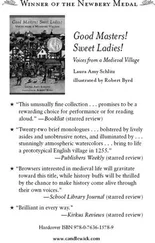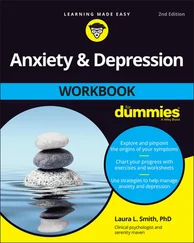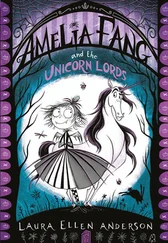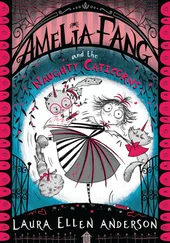Laura Schlitz - Splendors and Glooms
Здесь есть возможность читать онлайн «Laura Schlitz - Splendors and Glooms» весь текст электронной книги совершенно бесплатно (целиком полную версию без сокращений). В некоторых случаях можно слушать аудио, скачать через торрент в формате fb2 и присутствует краткое содержание. Год выпуска: 2012, ISBN: 2012, Издательство: Candlewick Press, Жанр: Старинная литература, на английском языке. Описание произведения, (предисловие) а так же отзывы посетителей доступны на портале библиотеки ЛибКат.
- Название:Splendors and Glooms
- Автор:
- Издательство:Candlewick Press
- Жанр:
- Год:2012
- ISBN:978-0-7636-6246-2
- Рейтинг книги:5 / 5. Голосов: 1
-
Избранное:Добавить в избранное
- Отзывы:
-
Ваша оценка:
- 100
- 1
- 2
- 3
- 4
- 5
Splendors and Glooms: краткое содержание, описание и аннотация
Предлагаем к чтению аннотацию, описание, краткое содержание или предисловие (зависит от того, что написал сам автор книги «Splendors and Glooms»). Если вы не нашли необходимую информацию о книге — напишите в комментариях, мы постараемся отыскать её.
Splendors and Glooms — читать онлайн бесплатно полную книгу (весь текст) целиком
Ниже представлен текст книги, разбитый по страницам. Система сохранения места последней прочитанной страницы, позволяет с удобством читать онлайн бесплатно книгу «Splendors and Glooms», без необходимости каждый раз заново искать на чём Вы остановились. Поставьте закладку, и сможете в любой момент перейти на страницу, на которой закончили чтение.
Интервал:
Закладка:
A light glanced off the stained-glass window. One of the night watchmen was passing. Dr. Wintermute’s lips moved. Silently he counted to five hundred, allowing the man time to go away. Then he struck a match and glanced at his watch. Six forty-nine. He blew out the flame.
The time passed with infinite slowness. Thirty-four minutes past seven. Seven minutes past eight. He would leave the vault at quarter to twelve. It was a five-minute walk, no more, but he must not be late.
He thought of his wife back in Chester Square. Ada shared his vigil. He could almost see her: silent, prayerful, with every muscle rigid and her eyes fixed on the clock. Her anguish over Clara’s disappearance had been so great that he had feared for her reason. Then the letter arrived. The dazzling, improbable hope that Clara might be ransomed had changed Ada into a woman he had never seen. Her eyes were tearless; she was charged with energy and decision. There was only one thing to do, she stated: get the money and pay the ransom.
Dr. Wintermute agreed. He had assured the inspector that if he received a ransom letter, he would contact the police. Now he broke his word, sacrificing his honor. He believed the kidnapper’s threat. He dared not risk Clara’s life.
His mouth twisted. Only a week ago, he had thought how little he knew his daughter. Now he seemed to know her through and through. Trifles came back to haunt him. He remembered the slippers Clara embroidered for him, and her frown of concentration on those rare occasions when he found time to play chess with her. He remembered the way she crept through the house on tiptoe when Ada had one of her headaches.
He searched for a happier memory. As a tiny child, he recalled, she was boisterous and robust, a juggernaut of a little girl. Agnes, the nursery maid, had complained of her naughtiness. “Miss Clara’s as noisy and bold as her brother, Dr. Wintermute, sir. It’s a fine thing for a boy to have spirit, but a little girl ought to be more quiet-like.” It was not long after that Clara became quiet. The deaths of her brothers and sisters had silenced her.
He thought of her face on the night she disappeared: her swollen eyelids and the eyes that pierced him like a lance. He had feared then that she guessed his terrible secret, and the thought returned now to torment him. Had she known that in his heart, she must always be second to Charles Augustus? It had been true, but it was true no longer. If she came back to him, he would find a way to tell her so; he would clasp her tightly and tell her over and over how much he loved her.
He reached to make sure that the ten thousand pounds was still in his pocket. Clutching the money through his coat, he longed for his daughter and tried not to weep.
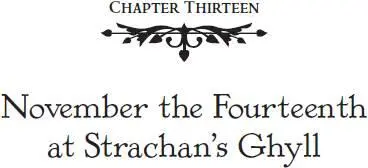
The witch dreamed that she was lying on her funeral pyre. Veils of white-hot fire surrounded her, and the brass monkey capered in the smoke. He gibbered and bared his teeth at her. Cassandra moaned. The fire opal on her breast was so heavy that she couldn’t draw breath.
She opened her eyes. The flames around her bed trembled, changing from fire to brocade. The curtains of the bed were drawn aside. Grisini stood before her.
He was young again, and somehow she was young, too. He wore an embroidered doublet, like a prince in a fairy tale, and his eyes were tender, his smile dazzling. He stooped as if to kiss her mouth, but what he did was sweeter still. With infinite care he slid his fingers under the phoenix-stone, lifting the burden from her heart.
Cassandra cried out. Tears of relief spilled down her cheeks.
Grisini removed the stone from its cage of golden wires. He turned and passed it to the children who had gathered around her bedside. Cassandra croaked his name: “Gaspare.”
The mantel clock chimed half past eight. Cassandra’s eyelids opened. This time she was fully awake: alone, decrepit, and in pain. The fire opal weighed upon her heart. Grisini was no fairy-tale prince but the man she hated above all others.
She sat up wearily. Why must she dream of Grisini? And if she must dream of him, why did she dream of him as her rescuer instead of her mortal enemy? She stared into space, pondering the question. Then she flung back the bedclothes and slid out of bed. She hobbled to her dressing table, opened the drawer, and took out an iron key.
It had been days since she left her bedchamber, and months since she entered the Tower Room, which was her stronghold. Cassandra had built Strachan’s Ghyll around the ancient tower, discarding the architect’s warning that the structure was on the verge of collapse. She had cast her most elaborate spells from the Tower Room. It was her fortress and her laboratory.
She unlocked the tower door and bolted it behind her. Fumbling a little, she struck a match and circled the room, lighting the candles in the wall sconces. Panels of black lacquer and mirror glass hung from the walls, multiplying the light from every flame. Cassandra set the last taper in the wall bracket and crossed to the cabinet opposite the door. From it she took a crystal globe as large as a child’s head. She set the crystal on the table and dropped into a chair, peering into the depths of the globe.
At first there was nothing to see, only a splotch of dim white — the reflection of her nightdress — and a constellation of tiny flames. Cassandra yawned. She had never been gifted at crystal gazing, and before five minutes had passed, she had given up the struggle to concentrate. Her eyelids drooped. Then her head jerked upward and her eyes grew wide. A mist was rising inside the glass globe.
Inside the mist was a city — not Venice, with its soft colors and shimmering water, but London, with its lead-gray fogs; and in London, Grisini — not the enchanted prince of her dreams, but Grisini as he might be now: cadaverous, seedy, and no longer young. Beside him were three small and shadowy figures. Cassandra clicked her tongue in frustration. She could not understand what the children were doing there. But the crystal, unlike her sleeping mind, did not lie. If the crystal foretold the future, the mysterious children had some role to play in her life — and so did Grisini. Always she came back to Grisini, with his claim to secret knowledge, his damnable unless.
Cassandra shoved her chair back. She was too weary to think anymore. She heaved herself onto her feet — and stepped back.
The mirrors around her were alive. Each mirror held a wraith of a woman, burning. The sheets of glass reflected the image over and over again, like colored beads in a kaleidoscope. Cassandra lifted her hands to cover her eyes. The women lifted their arms with her. Each pair of blazing hands moved in rhythm with her hands. Each tortured face was her own — and as she recoiled from them, she smelled smoke.
Cassandra gave a great wild cry. Her hand flew to the locket at her breast. She shut her eyes and willed the vision — if vision it was — to stop. She told herself that it could not be happening — it must not happen, not ever; she must not burn.
She felt a breath of cooler air and opened her eyes. The figures in the mirror were no longer clear; as she watched them, they became translucent and drifted away like smoke. Cassandra let out her breath. It had been a waking nightmare, no more. There was still time to save herself from a fiery death.
She tightened her grip on the fire opal. It tingled as if it were alive and eager to serve her.
She opened her lips and spoke Grisini’s name.
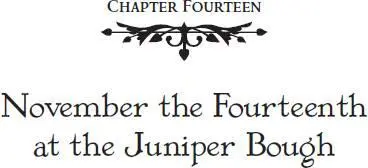
Интервал:
Закладка:
Похожие книги на «Splendors and Glooms»
Представляем Вашему вниманию похожие книги на «Splendors and Glooms» списком для выбора. Мы отобрали схожую по названию и смыслу литературу в надежде предоставить читателям больше вариантов отыскать новые, интересные, ещё непрочитанные произведения.
Обсуждение, отзывы о книге «Splendors and Glooms» и просто собственные мнения читателей. Оставьте ваши комментарии, напишите, что Вы думаете о произведении, его смысле или главных героях. Укажите что конкретно понравилось, а что нет, и почему Вы так считаете.


